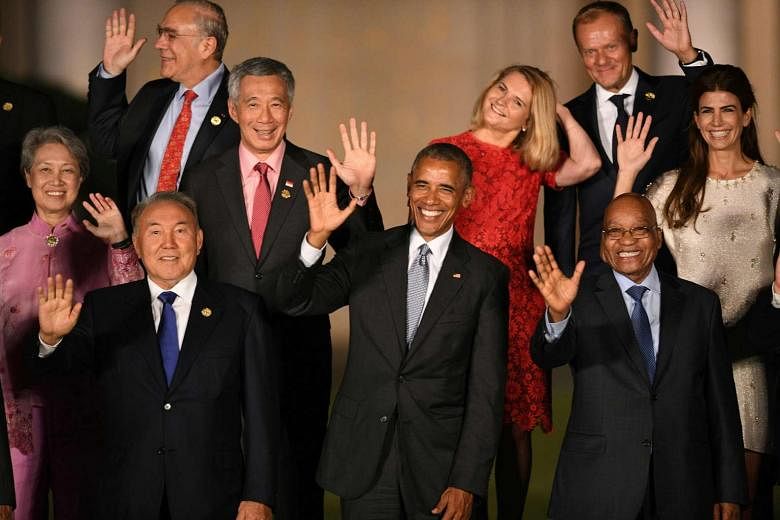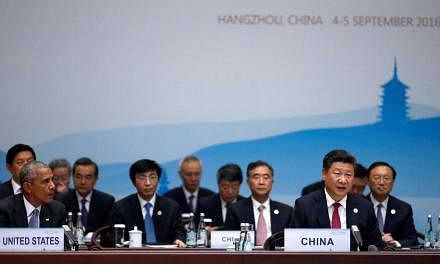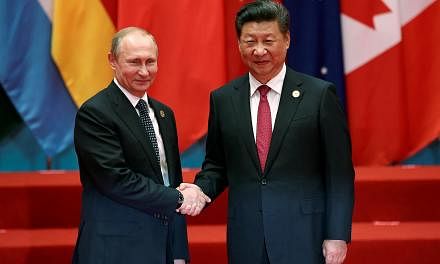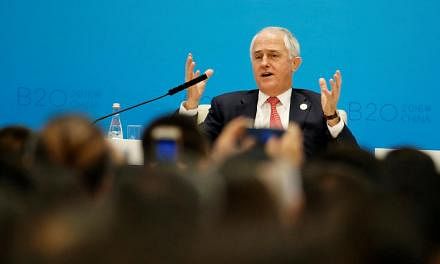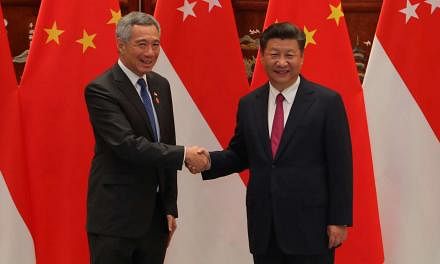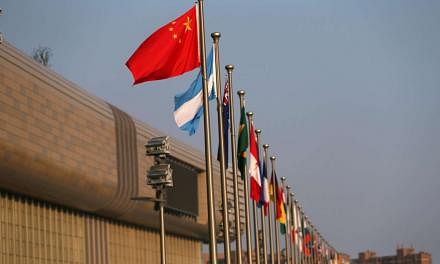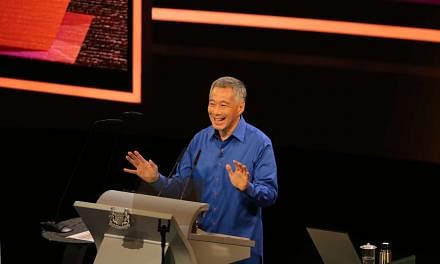HANGZHOU - Prime Minister Lee Hsien Loong on Monday (Sept 5) urged world leaders to continue to facilitate and liberalise trade.
Speaking during a working session at the Group of Twenty (G-20) leaders' summit, Mr Lee called on members to ratify the World Trade Organisation's (WTO) Trade Facilitation Agreement, which is aimed at boosting trade through reducing costs and speeding up the flow of goods.
"We should work internationally to keep up the momentum to facilitate and liberalise trade," said Mr Lee.
At the session, world leaders discussed the importance of spurring trade and investments amid rising anti-trade rhetoric, and a sluggish global economy. WTO figures in June showed that protectionistic measures have increased since 2008, which could take a toll on small, trade-reliant economy, like Singapore.
Mr Lee also proposed two more steps for major markets:
One, for talks on WTO's Environmental Goods Agreement (EGA), which seeks to cut tariffs on a wide range of "green" goods such as wind turbines and water treatment filters, to conclude by year-end.
Two, for world leaders to liberalise telecommunications and environmental services to boost growth.
The service sector plays an increasingly important role in economies, with a 2012 study by the United Nations Conference on Trade and Development showing that services accounted for two-thirds of global gross domestic product (GDP).
Mr Lee noted that public sentiments on trade has turned as workers, who felt they had not benefited from it, had become anxious.
But he said trade is the only way for economies to achieve win-win situations and boost productivity, and should be promoted on all levels.
Domestically, countries have to allay workers' anxieties and "help the losers" even as they celebrate the winners. This means shifting businesses and workers out of uncompetitive industries, and guiding them to take advantage of new technologies and opportunities overseas, he said.
Governments should "intervene to facilitate change and avoid structural unemployment, rather than to freeze status quo and subsidise uncompetitive industries or jobs", he said.
As fresh business models emerge, governments should also update their regulations instead of closing themselves off to new approaches.
Countries should also promote regional-level trade by actively participating in regional institutions and trade agreements, said Mr Lee, citing the Trans-Pacific Partnership, and China's "One Belt One Road" strategy, as examples.
Such agreements are aimed at integrating different economies and will reap benefits to be shared by a large proportion of the population, he added.
